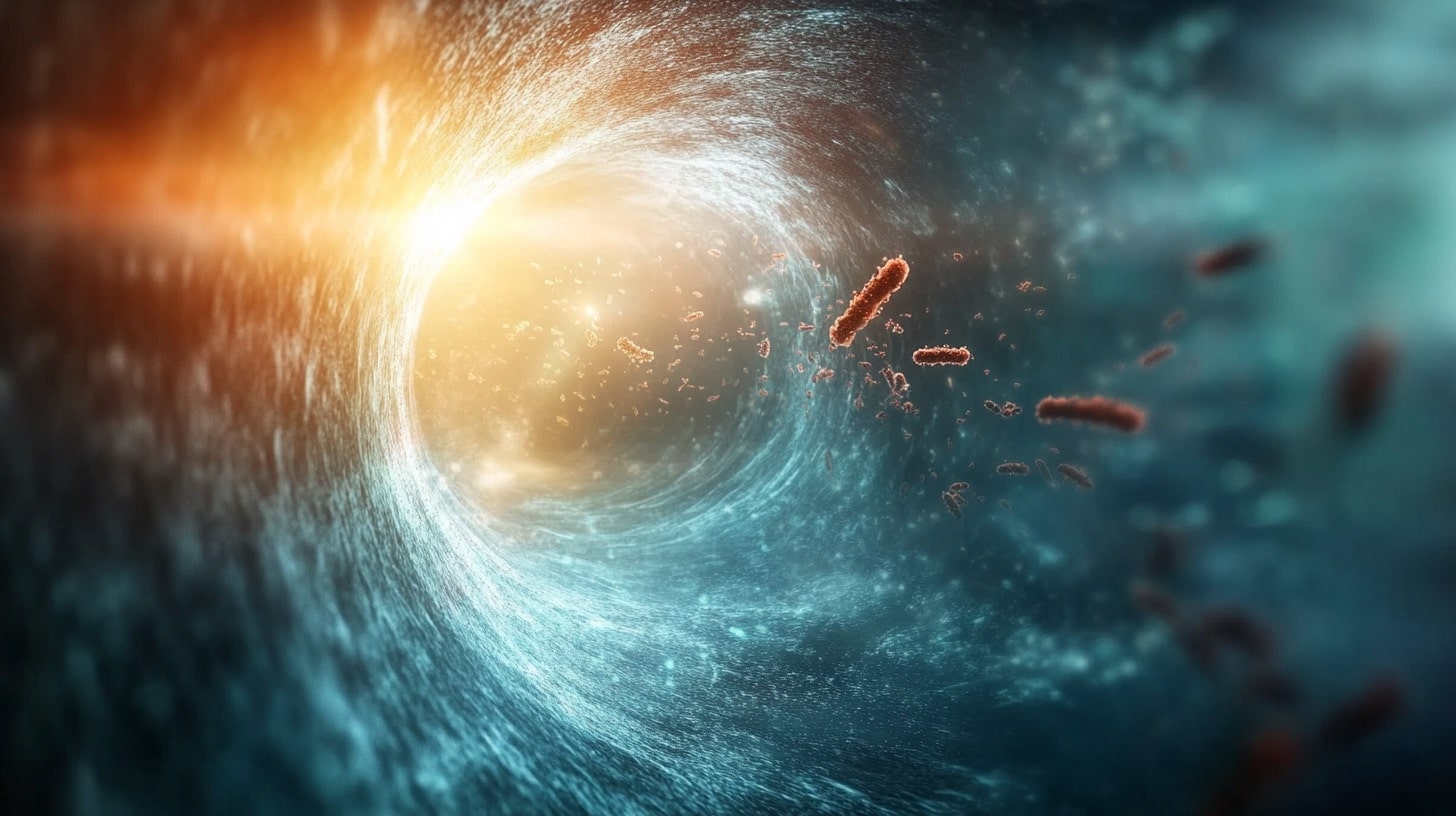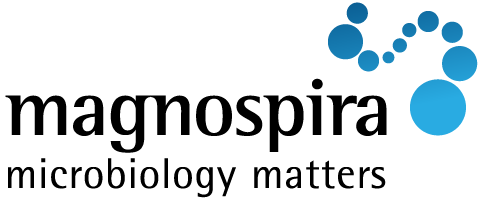The Fight against Acid
Proton pump inhibitors have become exceptionally popular in recent years. They reduce the production of stomach acid and therefore alleviate symptoms such as heartburn and reflux. But are they really as safe as the pharmaceutical industry likes to make them out to be? The latest research shows the dark side of these quick helpers.
Sharp increase in the administration of proton pump inhibitors
In Germany, 3.65 billion defined daily doses of PPIs were prescribed in 2015. This is a threefold increase compared to ten years previously. A further analysis from 2016 showed that, statistically speaking, 11.9% of the German population take a dose of PPIs every day. In the USA, around 7.8% of the population regularly took PPIs between 2013 and 2014. This increase raises questions about the long-term safety of proton pump inhibitors and their effects on the microbiome.
Mode of action of the proton pump inhibitors
Proton pump inhibitors (PPI) act on the H+/K+-ATPase in the cells of the stomach and thus reduce the production of stomach acid. This enzyme is also known as the proton pump and is responsible for the final step of hydrochloric acid production in the stomach. The pump releases protons (H+ ions) into the stomach, where they combine with chloride ions to form hydrochloric acid (HCl). This hydrochloric acid kills 99% of all bacteria that enter the stomach with food and thus serves as an important guardian of the body’s own microbiome. However, proton pump inhibitors act precisely on this guardian and inhibit it irreversibly. This takes 24 to 48 hours and ultimately until the body synthesizes new proton pump molecules to restore acid secretion. This means that a single dose of PPIs is sufficient to reduce gastric acid production by 80 to 95 %.
This massive reduction is usually sufficient to alleviate symptoms. However, as stomach acid production is back to 100% after one or two days, proton pump inhibitors are often taken over a long period of time. And this is precisely where the problem lies.
Which diseases are treated with proton pump inhibitors?
Proton pump inhibitors essentially help against three clinical pictures:
Gastroesophageal reflux disease (GERD)
GERD causes stomach acid to flow back into the esophagus and cause irritation. PPIs reduce acid production, allow the mucosa to recover and reduce the risk of complications such as esophagitis or Barrett’s esophagus.
Stomach ulcers
PPIs promote the healing of stomach ulcers and reduce the acid load, thereby minimizing the risk of bleeding or perforation. They are also part of Helicobacter pylori eradication therapy in combination with antibiotics.
Zollinger-Ellison syndrome
This rare disease causes excessive acid production by gastrin-producing tumors. PPIs effectively control acid secretion and relieve symptoms.
PPIs are so effective because they do not neutralize the acid, as antacids do, but block acid production.
Frequent prescription of PPIs
Doctors like to prescribe PPIs frequently. In low doses, they are usually also available from pharmacies without a prescription.
“I prescribe PPIs every day. Patients take them like candy”
This is what one doctor told us anonymously. And this is precisely where the problem lies. Patients, who often only want to suppress a symptom in the short term, end up undergoing long-term therapy out of convenience. Convenience? Yes, because the symptoms would usually disappear or at least be drastically reduced with a long-term change in lifestyle. As a result, gastric acid continues to pass from the stomach into the oesophagus (reflux) and causes the unpleasant burning sensation behind the breastbone. In severe cases, the resulting irritation of the mucous membrane can lead to inflammation and damage to the oesophagus.
Proton pump inhibitors and the microbiome
However, long-term treatment with PPIs is dangerous. It is not without reason that the body has set up stomach acid as a natural barrier for microorganisms. It is not primarily about preventing bacteria from entering the gut – this is impossible even with uninhibited gastric acid production. Rather, it is about ensuring that the balance in our well-balanced microbiome is not disturbed.
Scientific studies have now shown that not only is the microbiome in the gut severely disrupted, but that the suppression of stomach acid also has an effect on the composition of bacteria in the stomach, esophagus and mouth.
Oral cavity
Food brings us into constant contact with bacteria in the mouth. Surprisingly, the oral microbiome remains relatively stable. This is achieved by bacterial populations that are in equilibrium with each other. Due to the altered pH value, bacteria from the intestinal tract can enter the mouth via the stomach and colonize there. The reduced acid production in the stomach also reduces the acid load in the upper digestive tract. This allows some pathogenic bacteria to colonize in the mouth that would otherwise have no chance. This leads to a change in the oral flora and favors inflammatory processes and oral diseases. The presence of Fusobacterium nucleatum in particular can promote tumor formation in the mouth, oesophagus, stomach and intestines.
Oesophagus
The lower stomach acidity allows negative bacteria to colonize the esophagus in the long term, which would otherwise have no chance there.
Stomach

Despite the high hydrochloric acid content, the stomach is never germ-free. In particular Helicobacter pylori has specialized in moving into the mucus layer of the stomach and thus escaping the low pH value. However, if the acidity drops, even more bacteria can colonize. Studies show that streptococci and other oral bacteria can then suddenly spread in the stomach and cause inflammation and cancer.
Small intestine
From the stomach it goes into the small intestine. If more bacteria enter the small intestine, this can lead to bacterial overgrowth (small intestinal bacterial overgrowth, SIBO). SIBO is associated with symptoms such as flatulence, diarrhea and malabsorption. In malabsorption, not enough nutrients are absorbed through the small intestine. The small intestine is the gateway through which nutrients that pass through the stomach are released into the blood. These nutrients, such as proteins, fats, carbohydrates, vitamins and minerals, are vital and their deficiency can lead to serious illness.
This malfunction, i.e. the reduced ability of the small intestine to absorb nutrients, can also be caused by coeliac disease – an autoimmune disease in which the consumption of gluten leads to damage to the mucous membrane of the small intestine. It is conceivable that in cases where coeliac disease is suspected, reduced stomach acid production due to PPIs is the actual cause.
Large intestine
Finally, PPI use leads to reduced bacterial diversity in the colon and an increase in potentially pathogenic bacteria such as Enterococcus and Escherichia coli, which increases the risk of infections such as Clostridium difficile increases.
The intake of PPIs can therefore influence the microbiome at all levels from the oral cavity to the large intestine and trigger diseases, including cancer.
PPIs change the pH value of the stomach so that not only do more bacteria enter the small intestine and large intestine, which would otherwise have no chance of colonizing there, but the microbiome of the entire digestive tract, from the oral cavity to the oesophagus, stomach and small intestine through to the large intestine, can also be affected. The changes in the microbiome can manifest themselves in various diseases, e.g. in an increased risk of infections, inflammatory diseases or even cancer.
Do PPIs cause bowel cancer?
While bowel cancer in older people has decreased over the last 20 years due to increased screening, a worrying increase in bowel cancer cases of around 1 to 2 % per year has been observed in younger people in recent years.
Could this observation point to the increased administration of PPIs? In principle, this would be possible via the changes in the microbiome, especially as proton pump inhibitors also inhibit the absorption of certain nutrients such as magnesium and vitamin B12, the deficiency of which can impair DNA repair and cellular health.
PPIs, microbiome and dementia
The observed increase in dementia with the long-term use of proton pump inhibitors could also be directly related to the change in the microbiome. Dysbiosis, i.e. an imbalance in the bacterial populations, could severely disrupt communication via the gut-brain axis and, together with increased inflammation, be responsible for the rise in Parkinson’s disease.
PPIs reduce the diversity of the microbiome
Essentially, proton pump inhibitors reduce the microbial diversity of the microbiome. This decreasing alpha diversity, i.e. the diversity of bacteria within a sample, is caused by the “bad” bacteria, which can suppress or displace the “good” bacteria due to the lack of a gastric acid guard. This leads to dysbiosis – an imbalance of good and bad bacteria – with the known health consequences.
Protection of the microbiome
First and foremost, the use of proton pump inhibitors should be avoided in favor of the microbiome. There is a reason why the body only allows very few bacteria to enter the small intestine by producing stomach acid. There may be cases where the use of PPIs is clinically indicated; however, this should be limited to a short period of time.

Long-term measures to reduce PPIs
As with many other diseases and symptoms, a long-term approach is required: A balanced, high-fiber diet and sufficient exercise are sufficient in most cases to prevent a large proportion of reflux and heartburn symptoms. In addition, a change in lifestyle: reducing a diet high in fat and sugar, no nicotine, little alcohol, little caffeine and reducing excess weight.
Everyone wants a quick solution
But nowadays everyone wants a quick solution. The doctor becomes a vicarious agent. Trust in the pharmaceutical industry seems to be boundless. Potential side effects are simply ignored. Only targeted education can help here – over and over again.
Home remedies instead of PPI

There are a number of tried and tested home remedies to combat heartburn and reflux.
Baking soda (baking powder)
Baking soda is a base that can neutralize stomach acid. Half a teaspoon of baking soda in a glass of water can provide quick relief. However, it should not be used too often as it can affect the pH value in the stomach and cause side effects such as flatulence.
Ginger
Ginger has anti-inflammatory properties and can help to improve digestion. It is best chewed in small pieces or prepared as a tea.
Camomile tea
Chamomile can have a calming effect on the gastrointestinal tract and relieve inflammation. A cup of chamomile tea about 30 minutes to an hour before going to bed can relieve heartburn at night.
Chewing gum
Chewing gum stimulates saliva production, which can neutralize the acid in the oesophagus. Care should be taken to ensure that it is free from sugar and sweeteners. Unfortunately, sucralose is very common in chewing gum these days.
Oat flakes
Oatmeal is a high-fiber, easily digestible food that can bind excess stomach acid and prevent reflux.
Almonds
Almonds can neutralize excess stomach acid because they are alkaline.
Bananas
Bananas have natural antacid properties, which means that they neutralize stomach acid and can form a protective layer in the stomach.
In addition, care should be taken to ensure that the last meal is eaten around two to three hours before going to bed. Raising the head end of the bed can also prevent nocturnal reflux.
Protecting the microbiome
In most cases where PPIs are taken, it would be better to resort to natural remedies instead of taking the quick route via the pharmaceutical industry.
PPIs are medicines – and no medicine is free from side effects. Due to the potential changes to the microbiome caused by PPIs, proton pump inhibitors should therefore only be taken for serious medical indications and only for a short period of time.
Sources and further reading
Bruno G, Zaccari P, Rocco G, et al. Proton pump inhibitors and dysbiosis: Current knowledge and aspects to be clarified. World Journal of Gastroenterology. 2019;25(22):2706-2719. DOI: 10.3748/wjg.v25.i22.2706
Imhann F, Bonder MJ, Vich Vila A, et al. Proton pump inhibitors affect the gut microbiome. Gut. 2016;65:740-748. DOI: 10.1136/gutjnl-2015-310376
Naito Y, Kashiwagi K, Takagi T, et al. Intestinal Dysbiosis Secondary to Proton-Pump Inhibitor Use. Digestion. 2018;97(3):195-204. DOI: 10.1159/000485852
Zhu J, Sun C, Li M, et al. Compared to histamine-2 receptor antagonist, proton pump inhibitor induces stronger oral-to-gut microbial transmission and gut microbiome alterations: a randomized controlled trial. Gut. 2023. DOI 10.1136/gutjnl-2022-327747
Long-term use of proton pump inhibitors is associated with increased mortality. Der Arzneimittelbrief. 2017. DOI 10.1007/s15036-020-1328-3



